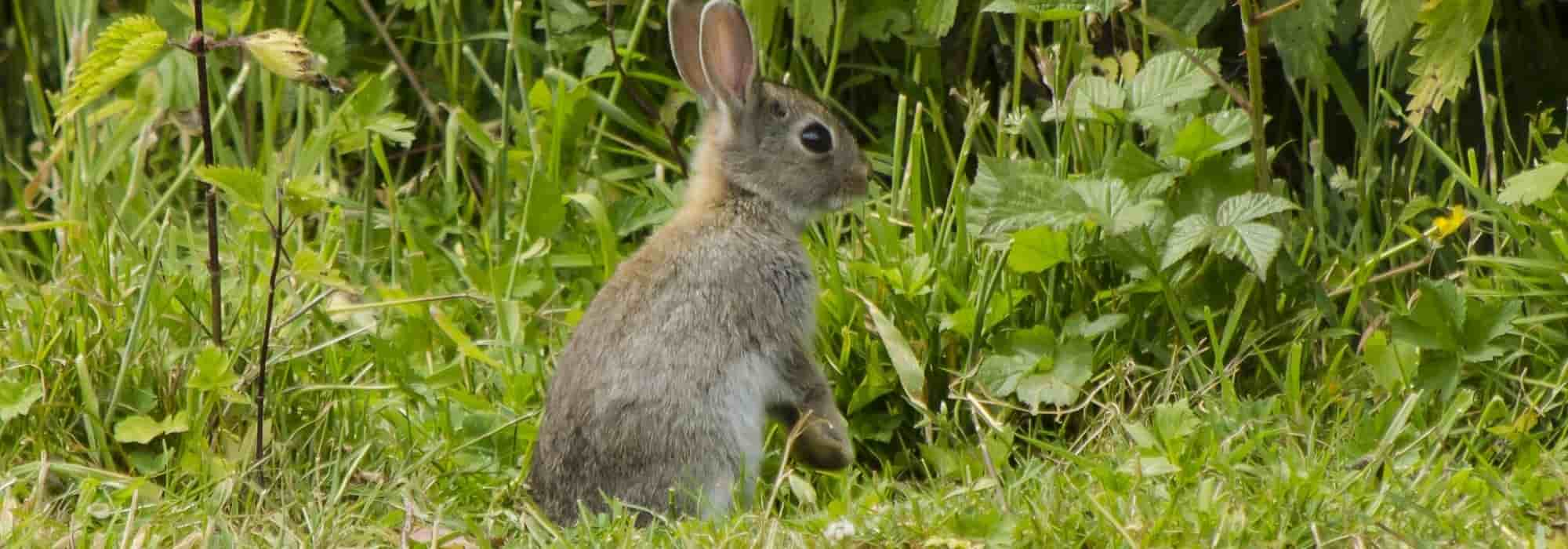
Country kitchen garden : how to protect crops from animals?
Our tips to keep rodents, deer, or birds away from your vegetable garden
Contents
Living in the countryside is a privilege. Growing your vegetable garden is another. Unfortunately, that very garden, overflowing with young shoots or tender leaves, attracts the attention of so-called wild animals that visit it regularly at night. In the morning, all you can do is assess the damage and lament your fate as an unfortunate gardener. A gardener who loves animals, aware that all have a role to play in a balanced nature where biodiversity reigns. It is therefore inconceivable for you to use drastic measures to eliminate rabbits, voles, shrews, starlings, squirrels, and other deer or bucks.
Beyond the fact that the law does not permit it (for certain animals), we can only commend your humane approach. However, finding your garden devoured is disheartening. So to prevent your young carrots, cabbages, soft fruits, or salads from disappearing under the teeth or beak of some greedy and hungry animals, follow our tips and tricks.
What are the 'pests' in a vegetable garden?
The animal kingdom rules your garden! First, there’s the small wildlife that passes (almost) unnoticed, flying, crawling, or buzzing in your ears—pests you despise or welcome allies in the vegetable patch.
There are also all the animals that sometimes find shelter and food there, such as amphibians, birds, reptiles, or small mammals like hedgehogs, which play a significant role in maintaining biodiversity.
Then there are those that, at times, endear themselves to us or cause us distress as soon as they set foot in our vegetable patch. In this category, I mention wild rabbits, various rodents like voles, field mice, and dormice, certain birds like starlings, squirrels, fond of bulbs, or even deer and their kin, sometimes wild boars, especially if your vegetable patch is located on the edge of a forest. Admittedly, they may just be passing through your garden, but they can cause enormous damage to your vegetable or fruit crops.
On the other hand, shrews, often confused with mice, are very beneficial for the vegetable patch as they are insectivorous rather than rodents. They are relatively easy to recognise by their pointed snouts. As for dormice, they are protected.
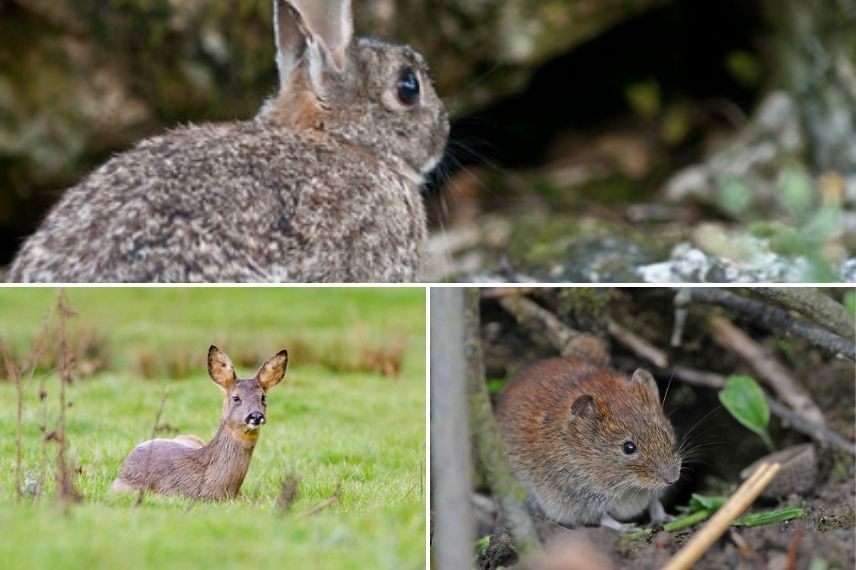
The pests in your vegetable patch hide during the day to work better at night
However, even if these ‘nuisance’ animals destroy the fruits of your labour, there’s no question for you (or for us!) of using quick or harmful methods for the environment. Moreover, laws strictly regulate the management of so-called nuisance animals, and you risk legal action if you do not comply with the environmental code established by the Ministry of Ecological and Solidarity Transition.
A few precautions to take to avoid attracting wild animals
If these wild animals know perfectly well how to find your crops, there’s no need to add anything to attract them! So, make sure not to leave your dogs’ and cats’ food scraps, or those from your poultry, outside. At night, many animals will consistently come to finish off the bowls.
Similarly, remember to close your compost bin, which contains peelings that may attract rodents of all kinds. Rubbish bins are also a source of temptation for certain wildlife, so be sure to seal them tightly.
How to protect yourself from rodents?
As cute as they are, rodents can cause significant damage to the vegetable garden. Most dig tunnels or burrows, while some, like voles, nibble on roots, leeks, and other vegetables. Field mice enjoy seeds, buds, small fruits, and berries, while rabbits feast indiscriminately on grasses, young shoots, bark, bulbs, and vegetable crops… As for squirrels, they have a particular fondness for freshly planted bulbs, especially tulips and crocuses.
To combat field mice and other rodents, there are many environmentally friendly solutions. While the success of these methods can be unpredictable, it doesn’t hurt to try. Since rodents dislike strong smells, you can initially use natural repellents like garlic cloves or citrus tree peels scattered around. Dog hair is also effective, as are a few drops of castor oil spread around your vegetable garden. Elderberry is also a recognised repellent against mice and voles, so you can spray it as manure. Simply soak 1 kilogram of elderberry leaves in 10 litres of water for a day, then boil.
Certain plants are also known for their repellent action, starting with castor bean communis or fritillaries imperialis, also known as Imperial Crowns, which emit a strong odour. The spurge is also reputed to repel rodents and moles, just like the Incarvillea with its stunning flowers.

Incarvillea, castor bean, spurge, and fritillary imperialis are known for their repellent properties against rodents and moles
However, castor bean and spurge are somewhat toxic and should be kept away from children and pets.
The solution to protect your crops also lies in welcoming natural predators of rodents, such as snakes and owls. While it can be challenging to attract birds of prey to your vegetable garden, the harmless snake enjoys piles of stones or branches.
Finally, trap capture (non-lethal and non-injurious to rodents, which are relocated to areas where they are not unwanted) or ultrasonic systems can resolve your disputes with rodents.
As for rabbits, they are more difficult to deter. The most effective (and costly) solution remains the installation of very fine mesh fencing, which should be buried at least 20 to 30 cm into the ground and possibly bent outward. With this system, you should be able to sleep soundly.
How to scare away birds?
Many birds inhabit our vegetable gardens and ornamental gardens, clearing them of unwanted insects, caterpillars, worms, and other aphids. Great tits, European greenfinches, robins, blackbirds, and sparrows all have a role to play, but at the same time, they can be quite the thieves. Our strawberry plants and raspberry plants, as well as our fruit trees, attract them just as much as earthworms, and these friendly birds can swoop down on our ripe fruits with their beaks and cause real raids. The starlings lead the way!
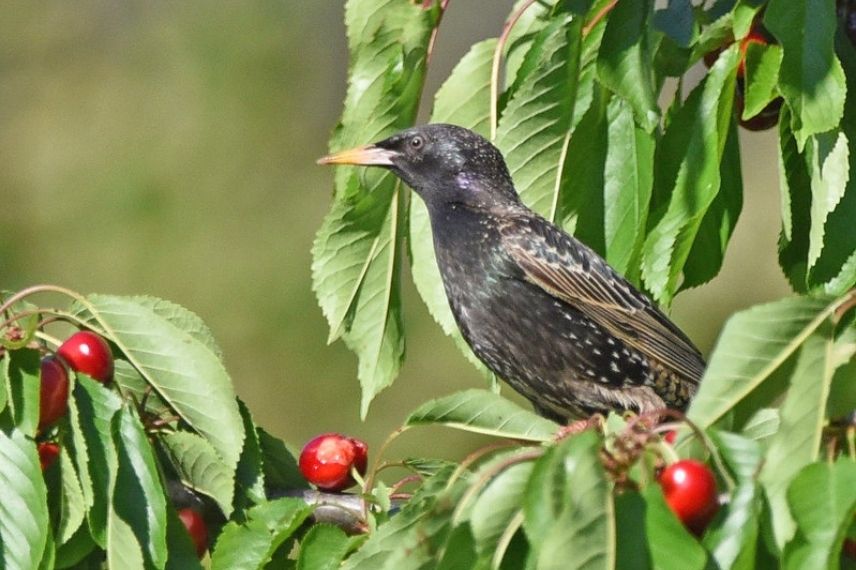
The common starling is a big fan of cherries!
To protect your fruits from the greed of these passerines, there are various solutions, some more effective, simpler to implement, and more costly than others. Bird protection nets with narrow mesh are perfect for small red fruits and small fruit trees. They can be placed directly over the plants or on the lower branches of trees.
To enjoy your ripe fruits before the birds do, you can also use some DIY methods to scare them away. Old CDs, aluminium foil, and plastic bags hung from branches are quite effective, as they move, make slight noises, and shine in the sun. A scarecrow or decoys shaped like a cat’s head or a bird of prey will also frighten the birds away. Japanese wind chimes will add a pleasant melody to your naps while serving a purpose. However, none of these solutions are foolproof, as birds quickly get used to them and realise they are merely decoys.
That said, these protective tools should be removed once the fruit harvest is complete. This way, the birds will return to your vegetable garden to find their daily sustenance.
How to deter deer?
With deer, we’re dealing with a serious issue! It requires significant measures to keep them at bay. The best solution remains the installation of a fence that is high and sturdy enough to withstand these cervids. Count on at least 3 metres in height, as deer and does are champions of steeplechase! It is also possible to install two lower fences spaced one metre apart to prevent deer from jumping over.
Planting defensive thorny hedges can also deter deer from your vegetable garden. Plant species such as holly (Ilex), barberry (Berberis), firethorn (Pyracantha), Mahonia… Admittedly, it will take some time, but this hedge will thicken over the years and change with the seasons, all while delighting the little birds.
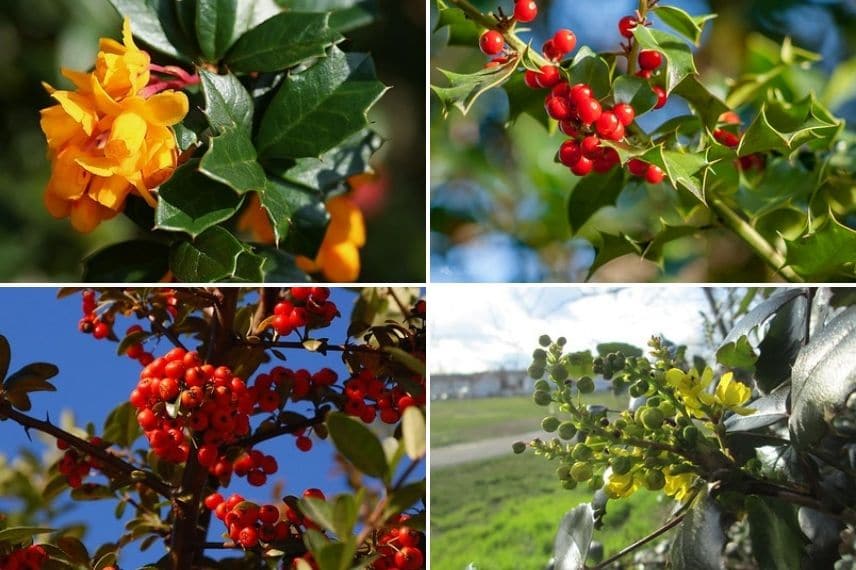
In the long term, a defensive hedge planted with species such as barberry, holly, firethorn, and mahonia can prove effective against deer
Literature is also full of miracle recipes to keep deer away, such as scattering human hair, dog fur, or sheep wool, hanging strips of white fabric or CDs… but results are not guaranteed.
Commercial solutions include:
- special deer repellents, suitable for organic farming, which emit unpleasant odours. They should be applied in autumn and throughout the growing season;
- ultrasonic repellents are also effective against wild boar.
And what about wild boars?
Wild boars are a real scourge for gardeners, farmers, winegrowers, market gardeners, and fruit growers… Wherever they go, all vegetation perishes. Just like with deer, drastic measures are necessary. And even more!
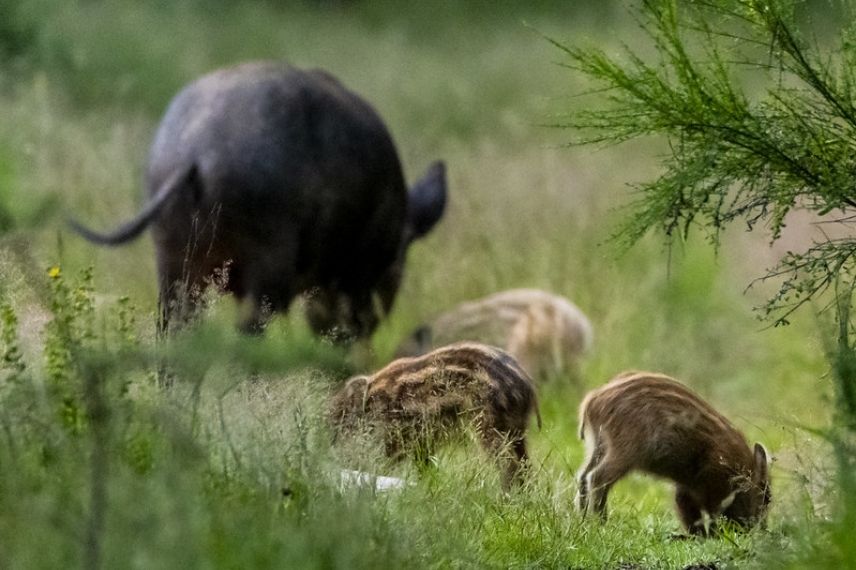
Wild boars can cause significant damage in fields, orchards, and gardens located in the countryside
Installing a fence can be enough to stop wild boars, provided it is sturdy, made of rigid welded mesh. A simple flexible mesh cannot withstand the strength of a wild boar. Installing tightly spaced barbed wire is also effective.
The market also offers natural repellents based on silica, but spraying must be repeated regularly. Ultrasonic repellents tend to work quite well. However, human hair, cloth soaked in cologne, peppermint essential oil, lemongrass, or macerated garlic remain uncertain options.
- Subscribe!
- Contents
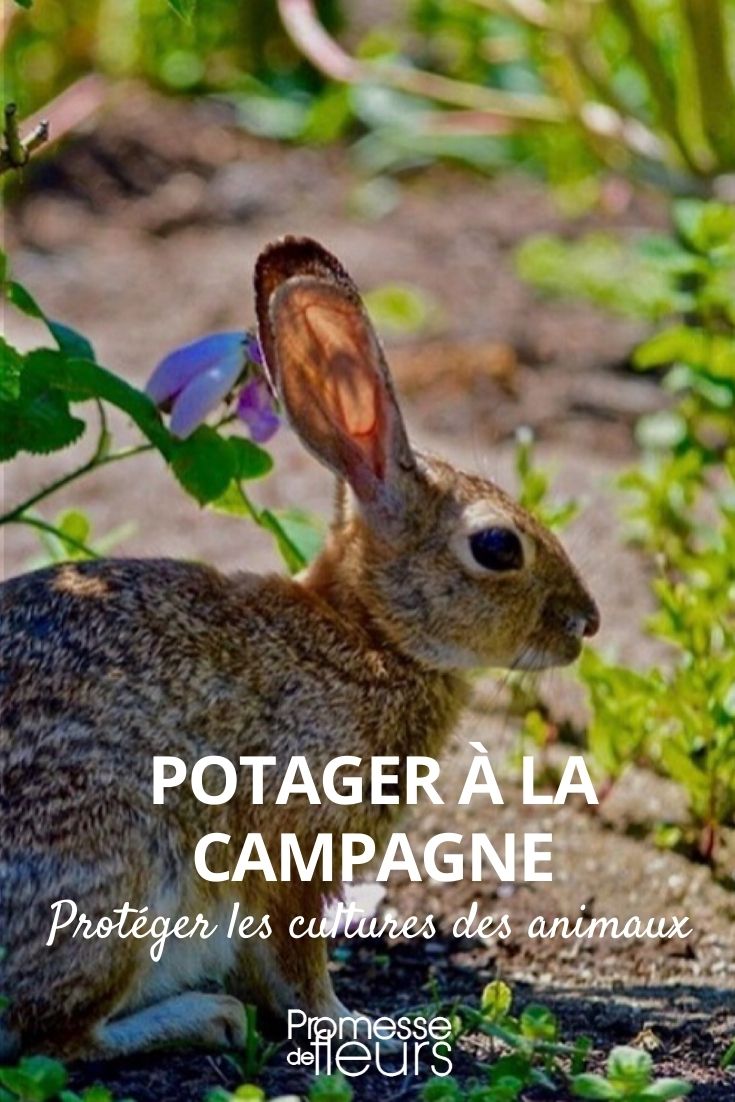































Comments